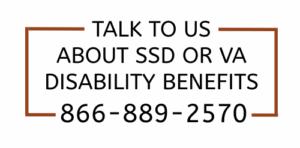Why Strong Medical Evidence Is Crucial for a Successful Disability Claim
When filing for disability benefits, strong medical evidence isn’t just helpful—it’s essential. The outcome of your claim more often than not depends on how well your medical history, physician statements, and diagnostic tests support your claim. Whether you’re beginning the application process or appealing a denial, understanding how to gather, organize, and present your medical documentation can significantly improve your chances of obtaining your disability benefits.
What Counts as Medical Evidence?
( Medical evidence is the cornerstone of any disability claim. It provides a detailed, objective record of your health condition and how it affects your daily life and ability to work. Key components include:
Medical evidence is the cornerstone of any disability claim. It provides a detailed, objective record of your health condition and how it affects your daily life and ability to work. Key components include:
- Medical records from regular doctor visits
- Diagnostic test results (like MRIs, X-rays, or lab work)
- Physician narratives describing your symptoms, limitations, and prognosis
Some types of evidence—such as recent, thorough evaluations and doctors’ notes that specifically describe functional limitations—carry more weight with claim evaluators. A well-organized file can show the severity and long-term nature of your condition, which only helps to strengthen your position.
Partnering with Your Healthcare Providers for Strong Documentation
 Maintaining consistent communication with your medical team is vital. Regular check-ups and ongoing treatment not only support your health but also help build a comprehensive medical record. Even if your condition cannot be cured, ongoing treatment demonstrates its seriousness and ensures updated records are available. Keeping current on and continuing your physician-prescribed treatment plan shows your commitment to your health.
Maintaining consistent communication with your medical team is vital. Regular check-ups and ongoing treatment not only support your health but also help build a comprehensive medical record. Even if your condition cannot be cured, ongoing treatment demonstrates its seriousness and ensures updated records are available. Keeping current on and continuing your physician-prescribed treatment plan shows your commitment to your health.
Encourage your doctors to include detailed notes about your symptoms, limitations, and how they affect your ability to perform everyday tasks. Well-documented insights from your medical providers carry significant weight.
Medical Evidence: Clarity and Structure Matter
How your records are presented can influence how your claim is reviewed. Organize documents chronologically and by category (e.g., test results, doctor notes, hospital visits). Include summaries that explain your condition and how the evidence supports your claim. Clear organization helps reviewers connect the dots between your medical issues and the criteria for disability benefits.
Overcoming Common Challenges
- Address Gaps or Inconsistencies. Missing or inconsistent information can weaken your claim. If you notice any gaps in your records—or if your documentation doesn’t reflect your current condition—follow up with your providers. Ask for clarifications, updated assessments, or additional test results. Being proactive about filling in these gaps helps ensure your claim reflects the full scope of your disability.
- Respond to Denials. If your disability claim is denied, don’t lose hope. The SSA will usually explain why they denied your claim, and that explanation can guide your next steps. Focus on strengthening your medical evidence by addressing the issues identified in the denial—such as outdated records or insufficient documentation. Submit updated physician statements, new test results, or specialist opinions to reinforce your case during the appeal. Don’t forget that you only have 60 days to file an appeal. If you are denied your benefits, obtaining legal representation should be your next step to ensure timely process coordination.
- Leveraging Expert Opinions. In some cases, expert evaluations from professionals like independent medical examiners or vocational experts can significantly bolster your claim. These third-party assessments can provide additional support, especially when they corroborate with your treating provider’s evaluations.
Expert opinions help explain how your condition affects your ability to work or carry out daily activities. When used strategically, they can fill in any remaining gaps and create a strong, cohesive argument for approval.
Winning a disability claim many times comes down to the strength of your medical evidence. By working closely with your healthcare team, staying organized, and addressing any weaknesses head-on, you can greatly improve your chances of success. Whether you’re filing an initial claim or fighting a denial, thorough and persuasive medical documentation is your most powerful tool.
 The legal team of Parmele Disability Advocates has been fighting for disability benefits for 24 years and has helped over 61,000 people receive their benefits. The best part? We don’t get paid unless you get paid—what do you have to lose? Even your initial consultation is no-cost. Call us today to schedule your no-cost consultation: 866-889-2570.
The legal team of Parmele Disability Advocates has been fighting for disability benefits for 24 years and has helped over 61,000 people receive their benefits. The best part? We don’t get paid unless you get paid—what do you have to lose? Even your initial consultation is no-cost. Call us today to schedule your no-cost consultation: 866-889-2570.
